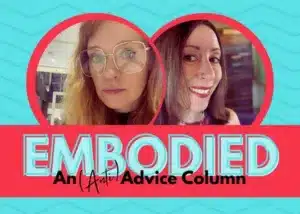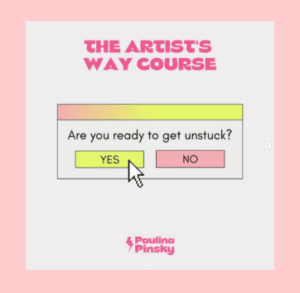For most of my twenties, I was a magical thinker. During this period of my life, I was reading a lot of self-help books, including the best-selling The Secret, and though I was in a Ph.D. program to study physiology for five years, The Secret had me believing I could do anything, have anything, be anything; all I had to do was ask the universe.
If becoming financially free was only a matter of making requests of the cosmos’ abundant piggy bank and holding my desires in my mind, why wouldn’t I ask to become a millionaire by thirty? Why stop there? Why couldn’t I write a commercial novel that would shoot to the top of bestsellers lists with the velocity of a Dan Brown thriller?
The spell began to break when my thirtieth birthday came and went and my wishes hadn’t been fulfilled: I wasn’t rich. My novel hadn’t attracted an agent; instead, I self-published. And like most of my friends, my talents were being exploited for profit in Corporate America. What had happened? How had I been so easily duped by The Secret’s tantalizing messages?
I later realized I was predisposed to the state of mind self-help books exploit.
When I was younger, my parents—especially my father—had a cliché for everything. For struggle, he claimed, “Where there’s a will, there’s a way;” for pain, “What doesn’t kill you makes you stronger;” for trauma, “Let the past be the past.” On birthdays, he’d announce half-kiddingly, “Today is the first day of the rest of your life.” His adages helped inform him, instruct him, and inspire him.
They did the same for me in adolescence and into early adulthood. Like my parents, I had a motto or cliché ready for most situations. For work: “A rolling stone gathers no moss.” For hardship: “Don’t worry; be happy.” For imposter syndrome: “Fake it ’til you make it.” To pay homage to my father, I collected his favorite axioms into a book, Life According to Dad, and gave it to him for Father’s Day.
Using clichés to guide my life worked until my late twenties, when they began to lose their potency. After graduating with a master’s degree, I became a marketing writer for businesses and nonprofits in Boston. I lived in the city, working on complex problems with smart people from diverse backgrounds, most of whom didn’t view the world through rose-colored glasses.
I’ve been an idea person throughout my career. Many of my ideas, which can often be categorized as “big picture,” have been implemented in anything from advertising campaigns and event themes to product names and product messaging. But whenever I used clichés to propose a solid idea in the workplace, others took me less seriously. Without acknowledging potential unintended consequences, I might come off as unrealistic, impractical, or too rosy.
I once helped build and drive the vision for a company’s blog, but I underestimated the time and technical resources needed to develop and maintain it. At lunch, I reflected on the process and dropped a quote from Napoleon Hill’s Think and Grow Rich: “Whatever the mind of man can conceive and believe, it can achieve.” My coworkers thought I was naïve, perhaps even delusional.
Clichés had helped structure my way of thinking, but they had become inadequate. They didn’t reflect the complex environments and circumstances of my adulthood. After a period of disillusionment, I knew I had to change. I started questioning the clichés and the way I dealt with reality.
Clichés, I realized, were too biased toward the positive at the expense of potential dark possibilities. When “times get tough,” it’s not always easy for the “tough” to “get going.” Sometimes, we’re just flat-out beat, and it’s wise to retreat, regroup, and reflect so we can “fight another day.” I was always told to “keep my head up,” but sometimes it’s tough not to lower it in defeat. While “smooth seas never made for skillful sailors,” storms hurt and can even break us.
Clichés no longer rang true for me because life wasn’t always easy or sunny. Reality didn’t always bend to my will. I pursued my goals, but they were tougher to achieve than I expected. I took wrong turns. Systems were unfair; folks were unkind. People let me down, insulted me, betrayed me.
In my late twenties and early thirties, I started accepting that life is as much disaster as triumph. We don’t always get into the school or program we seek. The job or career we want might not want us. Love can go unrequited. Financial setbacks happen. Accidents occur. Illness can strike. People lie. People die. By encouraging us to always stay positive, the clichés deny the reality we must face.
I eventually found a way to deliver my first death blow to the clichés that ran my life: therapy. My therapist was a social worker and a psychoanalytically-informed therapist not much older than me, so we were dealing with similar life-stage problems. His approach didn’t involve dispensing advice as a life coach might. Rather, he encouraged his patients to evaluate their reality objectively. To see themselves clearly. When people thought critically about themselves and their circumstances, they didn’t need advice, he reasoned, because they would know what to do.
Following his guidance, I realized my parents had raised me in a rather uncritical environment. Their philosophy was to “let sleeping dogs lie.” We avoided reflecting on pesky matters like what made us sad or mad lest we make things worse and cause new problems. For instance, if I had asked my parents about their divorce, they wouldn’t understand why I couldn’t leave well enough alone.
Such an uncritical environment ensures that nobody ever thinks about anything. And if someone doesn’t know what they think about something, they don’t know how they feel about it either. Using clichés is a way to avoid thinking. “Leave the past in the past” was the perfect countermeasure to talking about the trauma of my parents’ divorce. Clichés robbed us of the chance to acknowledge it. They robbed us of the chance to heal so the pain wouldn’t resurface in inexplicable ways, like overwork or substance abuse.
Despite the importance of thinking, therapy taught me that thinking is difficult, another reason some might want to avoid it. It takes time and energy to think through complicated matters, and people are always having to expand their vocabulary for puzzling issues.
Thinking is also messy. A person seldom comes to a complete understanding of the issues they face. Before therapy, whenever I might have reached the edge of my understanding, I’d employ a cliché that approximated my thoughts or feelings on the matter. But in therapy, I checked my clichés at the door. I was pushed to find words for how I thought or felt about events or people that troubled me. I rambled and talked nonsense, but insights came. Sometimes, we would unlock something that had been a mystery.
Living and working in rural New Hampshire, where my parents have spent their entire adult lives, is simpler. One can often get away with using clichés to navigate and interpret life in such rural settings. In the city, however, where I’ve worked in modern offices, life isn’t black and white but shades of gray. Negotiating city and corporate life requires more complex systems of thought. While rural life might lead to simplistic thinking, city life can lead folks to become critical and cynical.
I wanted to evolve past my uncritical origins, but I didn’t want to go too far in the other direction and become a coldhearted cynic or nihilist. I still wanted to believe I had some control over my life. I just needed to find values, systems, and worldviews that accepted that life was sometimes unfair, often indifferent to our wishes, and actively resistant to our desires.
Enter the second death blow to living a clichéd life: philosophy or the love of wisdom. In my thirties, I replaced new-age and self-help guides with philosophy. I read books on Eastern philosophy, like Lao Tzu’s Tao Te Ching and Confucius’s Analects, and on Western philosophy, like Plato’s Republic and Marcus Aurelius’ Meditations. I joined philosophy groups, watched documentaries, and read biographies on Friedrich Nietzsche, Viktor Frankl, and Jean-Paul Sartre, among others.
Stoic philosophy was undergoing a resurgence at the time, and the tradition helped me cope with day-to-day challenges. For example, stoics believe that events don’t harm people as much as their judgments of the events do. Marcus Aurelius, a Roman emperor, encourages readers not to worry about things outside their control; instead, they should act on things within their control. Stoics also recommend living in accordance with one’s nature. If someone is athletic, they should do athletic things. If they’re brainy, they should do intellectual things. Such philosophy equipped me for life while also allowing me to accept its complexities.
Philosophy also helped me manage the dread that started to creep in as I approached midlife: knowing I was going to die one day. Enter existentialism.
The philosophical tradition of existentialism has been described as less a school of thought and more a mood or attitude toward life. It deals with matters such as anxiety, death, authenticity, isolation, and the search for meaning in one’s existence. More than any other philosophical tradition, existentialism has helped me address the realization that life lacks intrinsic meaning.
“No why. Just here,” as the composer and philosopher, John Cage, put it when Life magazine asked him about the meaning of life.
Faced with this understanding, I had to invent meaning for my life to avoid despair. But how? Jean-Paul Sartre’s idea that humans are radically free was both terrifying and exhilarating. According to him, “existence precedes essence.” In other words, no one is born with innate character traits. Rather, we construct who we are with every choice we make.
Albert Camus also agreed that life has no intrinsic meaning and reasoned it was absurd to seek meaning from a universe indifferent to our desires. He urges us to rebel against life’s absurdity by finding meaning in our relationships, our families, and our projects. In his famous essay The Myth of Sisyphus, Camus compares life’s absurdity to the punishment of Sisyphus, a figure in Greek mythology who was condemned to spend eternity rolling a boulder up a mountain, only for it to roll back down whenever he neared the summit. While Sisyphus was punished to forever perform a meaningless activity, Camus suggests that perhaps Sisyphus could find some joy in the absurdity of rolling the boulder. Maybe Sisyphus could even learn to be happy in his fate.
Once I accepted that the only meaning my life would have was the meaning I gave it, I began to engage in meaningful activities I found enjoyable, like writing: the final death blow to living a clichéd life.
Back when I started writing in my late twenties, I fell into every possible cliché trap. Let’s say I was writing a fictional action sequence where the hero confronts the villain, his former mentor, in a dramatic climax. In their final duel, the hero might get off a perfect shot, fatally wounding the villain.
“Great shot,” the villain might say, holding a hand over his bleeding stomach.
In that moment, the hero would likely say something like, “I learned from the best.”
Alas, I couldn’t keep that. It’s a cliché! And they are off-limits for writers. Why? A cliché might once have conveyed a truth, but readers have encountered it so often in movies and books, it no longer has the impact it used to. Through study and practice, I’ve learned that all good writing is a never-ending war on clichés. A writer must always search for fresh language. If I accidentally employ a cliché—which happens often—I strike it out in revision. This practice of avoiding clichés on the page has found its way into my life.
When I reflect on my evolution from a magical to a critical thinker, I realize that using clichés for so long allowed me to rely on the wisdom of others while I figured out who I was and what I thought. They gave me something to hold on to during the painstaking process of updating how I viewed and thought about myself and the world.
Now, in my late thirties, I realize the cost of not relying on clichés. They allowed me to avoid the difficult task of thinking. They allowed me to deny reality, which can be difficult to see clearly. Ignorance was bliss. Without clichés, life is messier, more nuanced, and sometimes incomprehensible. But “the truth hurts,” right?
Dustin Grinnell is a writer based in Boston. He’s the author of the short story collection, The Healing Book (Finishing Line Press), and host of the podcast, Curiously. His creative nonfiction has appeared in The Los Angeles Review of Books, The Boston Globe, The Washington Post, New Scientist, Vice, Salon, Hektoen International, and Writer’s Digest, among others. This story appears in his collection of essays, Lost & Found, which forthcoming with The Peter Lang Group. See more of his work at his website.
.
***
Our friends at Circe have launched an anti-advice column, and it is fire!
Click above to get details on how to ask Gina and Emily for advice and let us know what you think!
***
Looking to jumpstart your writing? Need to reignite your creativity?
Paulina Pinsky has reopened enrollment for her year-long The Artist’s Way course.
Designed to transform your creativity from stuck and frustrated to unblocked and an endless source of inspiration, for any creative journey you can dream of.
Click below for more information and let Paulina know we sent you!
***






